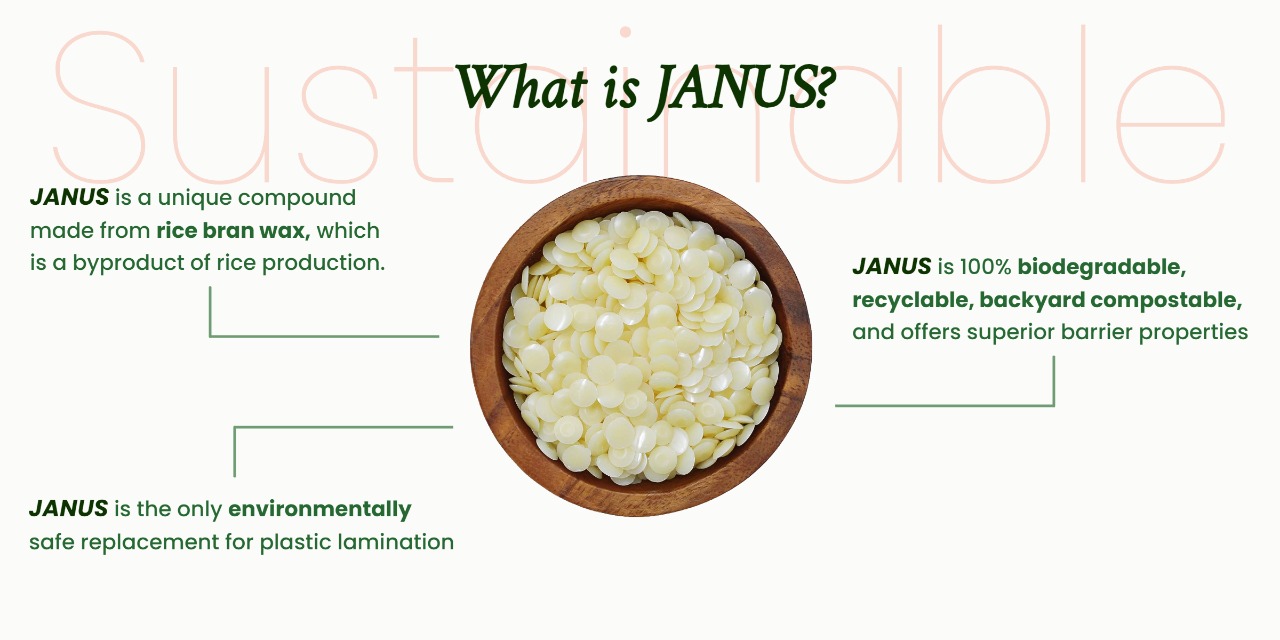
What is JANUS
®
?
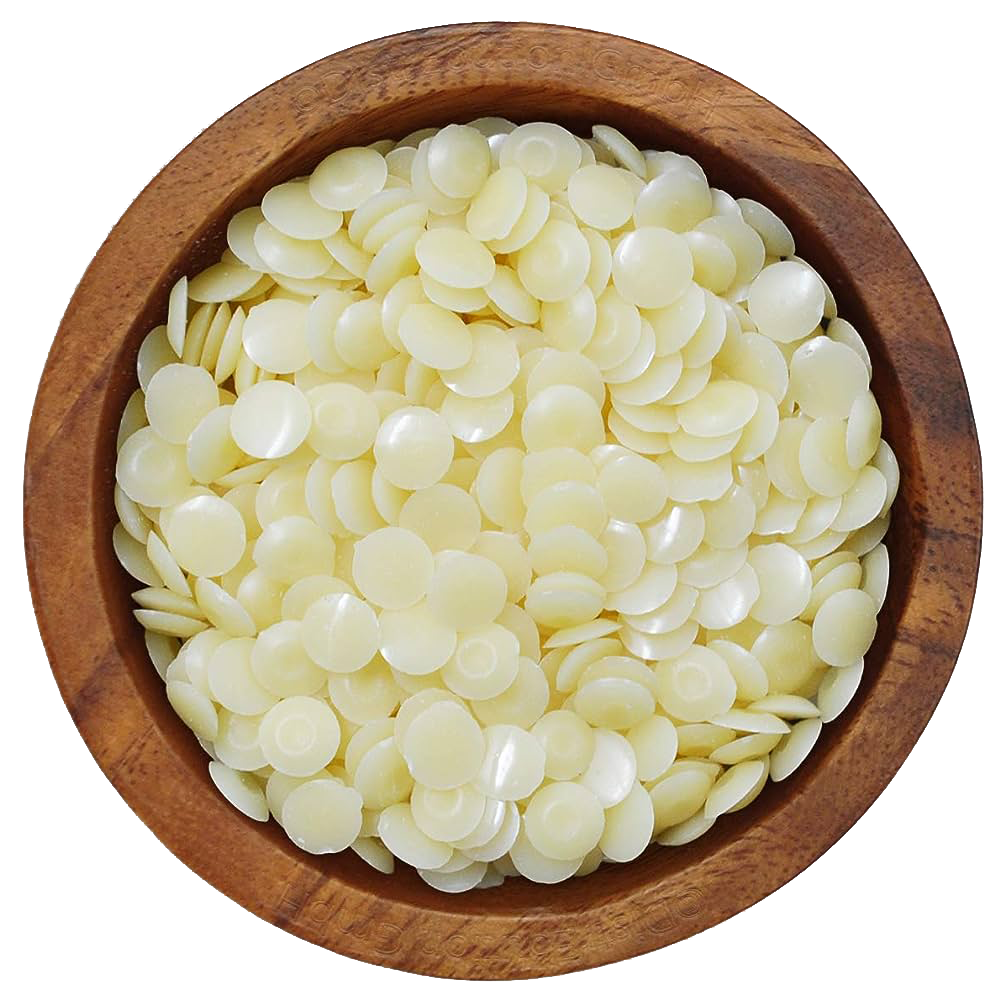
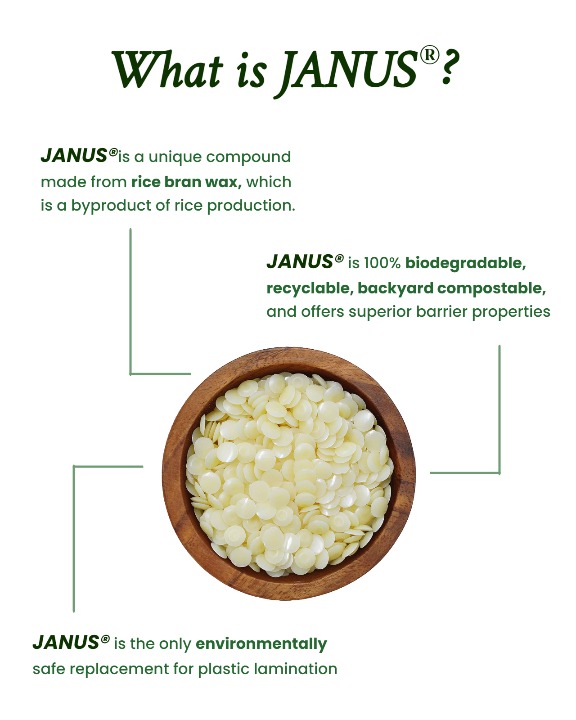

?
®
What is JANUS
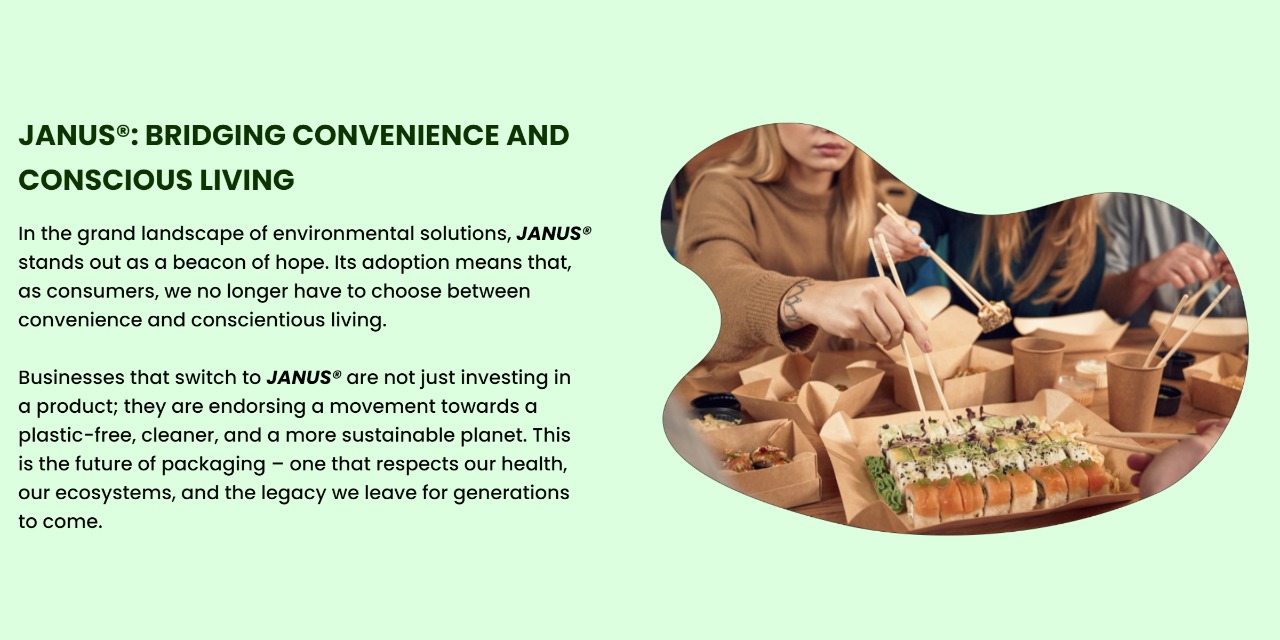
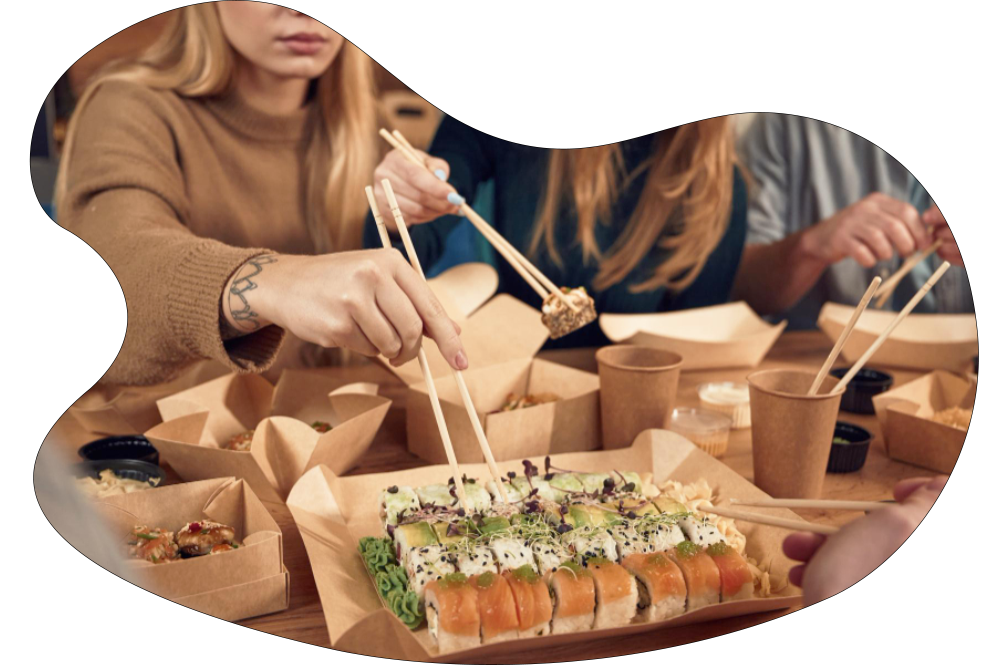
JANUS®: Bridging Convenience and
Conscious Living
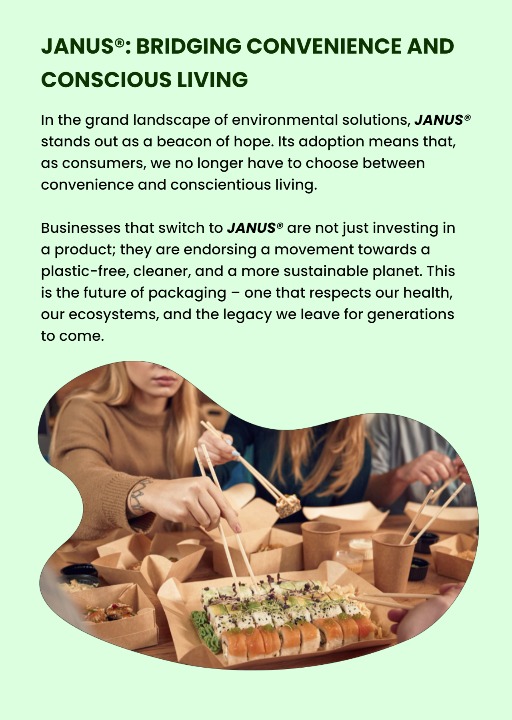
JANUS®: Bridging Convenience and
Conscious Living

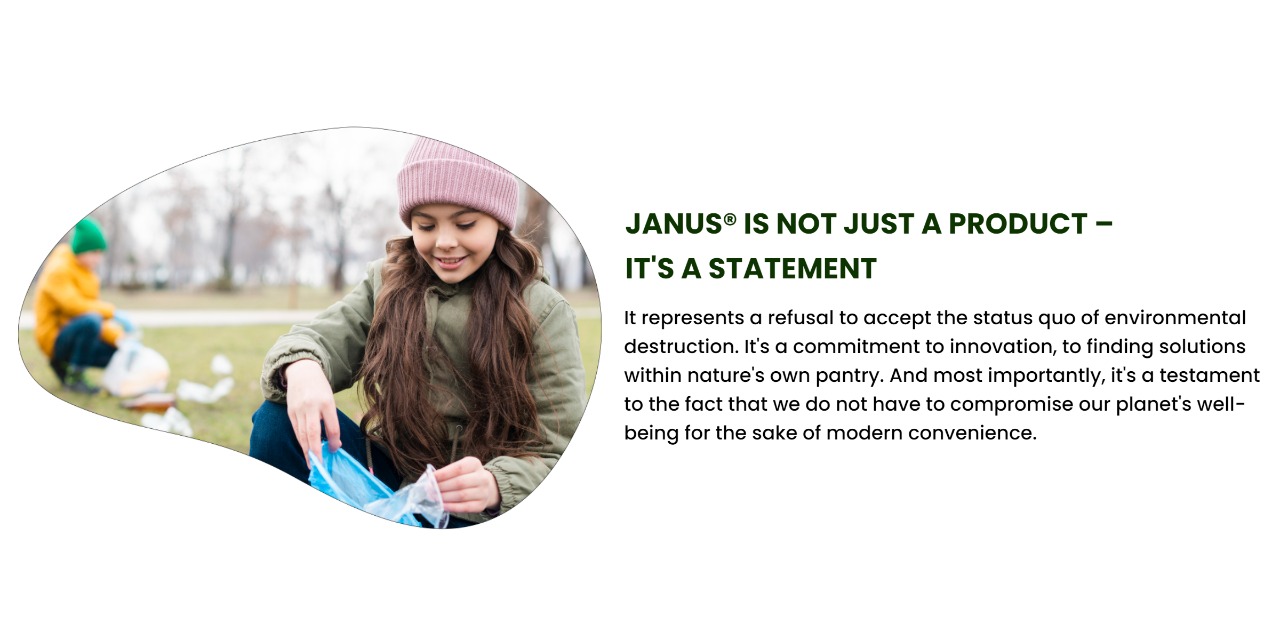

JANUS® is not just a product –
it's a statement
It represents a refusal to accept the status quo of environmental destruction. It's a commitment to innovation, to finding solutions within nature's own pantry. And most importantly, it's a testament to the fact that we do not have to compromise our planet's well-being for the sake of modern convenience.
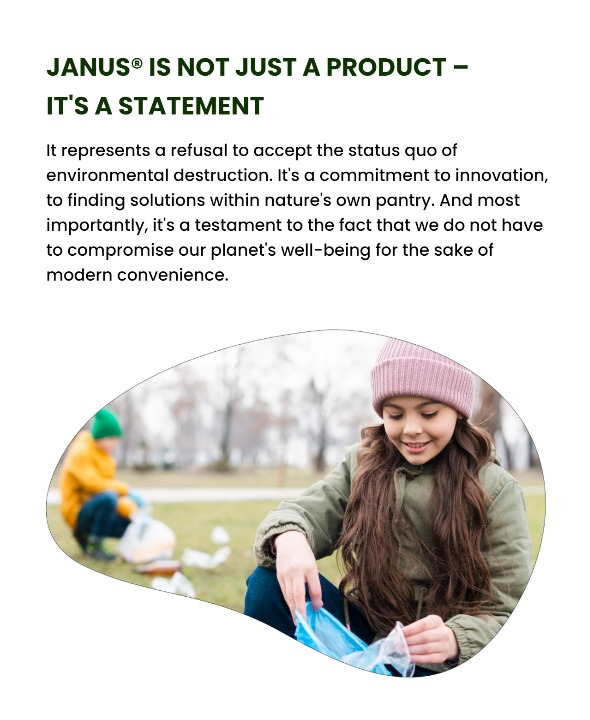
JANUS® is not just a product –
it's a statement


Innovating Sustainable Packaging with JANUS® 🌱
©2020-2024. J&J Green Paper. All Rights Reserved.